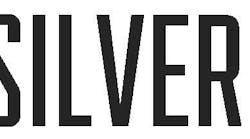I am not completely sure why, but even as a retiree I find myself perusing the resume and job hunting sites - partly to keep up on the career changes of old friends and colleagues, but also to stay abreast of the changing dynamics of the IT workforce. The former aspects have been fun, but the latter elements have me baffled. I guess I should write off my concerns as an oldster, but I think there will have to be a time coming when all this gets sorted.
I am specifically citing the dramatic evolution of IT position descriptions, titles, roles, certifications, and the shift to careers implausible just a few years ago. Back in June 2021, I wrote here about the change from the digital version of the traditional resume to the creative writing exercises that pass as desirable self-branding today. Since that time, even more, confusing workplace HR jargon has appeared.
We’ve seen the use (and overuse) of people claiming to be evangelists, serial entrepreneurs, advocates, and enthusiasts. I imagine a future employer would be pleased you are enthused with your career, but I am not sure how much of a bump it adds to your pay package. Perhaps HR should consider a 5% enthusiasm uplift.
When I had a BIG GOVERNMENT job, the hot new thing was to send everyone to a class on the Myers-Briggs Type Indicator(r) process and the resultant test with results. Back in my day, you were even given a little desk plaque with your personality type to display to coworkers so they could supposedly better understand why you were an annoying jerk or the person who stole food from the kitchen.One of my new favorites is those profiles who describe themselves as servant-leaders. When I first started encountering the term with some frequency, it immediately brought to mind the character Mr. Carson from the show Downton Abbey. What were these people trying to describe in themselves?
The basic concept of a servant leader is far from a brilliant, new management discovery. Its modern use was originally codified and described by Robert K. Greenleaf in a series of essays beginning in 1970. Of course, the principles cited by Greenleaf aren’t even a recently documented phenomenon: the ancients from Chinese philosophers to the Greeks, to the Biblical teachings of Jesus, contain many elements of what we now call servant-leadership. The fact it has blossomed into a resume enhancer this year is interesting. I suppose the real pitch for using this descriptive term is to claim you’re a forceful and impactful leader, but you’re a nice guy to everyone while doing your leading and not some authoritarian scoundrel.
Next up are the self-proclaimed career coaches. These are people who would like you to send them money so they can tell you what you need to do. This service must appeal to unmarried or unattached servant-leaders looking for guidance on where to lead. As I pondered the career coach (or even the bigger life coach) gigs, I have to wonder what makes someone feel qualified enough to throw out a shingle to offer these services. [“Hey, I’ve been doing halfway good in my career - it’s time to turn that into a moneymaker of a side hustle.”]
I’m calling it here folks: you will soon see certification for life and career coaches. Surely, someone wants to get in on the gatekeeping racket by melding two big trends in IT. If you decide to set up a certification body after reading this article, I will expect a significant royalty payment. If I tried to hire a qualified career coach, I’d expect to be benched.







